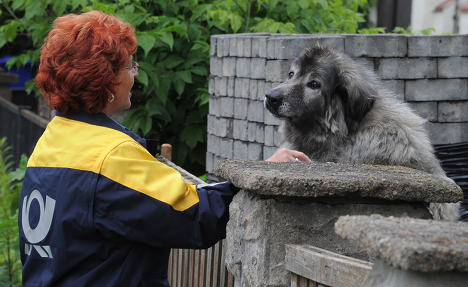Keep movements slow and do not shout were the top tips on Monday, when around 30 Deutsche Post employees from the north eastern state of Brandenburg began a course to help them when they find an angry canine between them and a letter box.
The benefits for the Deutsche Post are, it hopes, to cut down on the amount of sick days its employees are taking each year. Of the 1,800 incidents of posties being hurt by dogs, 500 of these cases required at least three days off work.
“The main problem with delivering the post is that the person delivering it is entering a dog’s territory, and is going to have to keep doing so,” said trainer Jörg Ulbricht.
Ulbricht explained that if a dog thinks they have successfully chased a person away, the animal will be just as confident when they come back.
He advises people to keep their hands still and in the case of attack to try to avoid any sudden movements.
“I have been bitten twice,” said Sabine Tiefenbeck who was on the course. “And such dread stays with you. It takes a while until you can be at ease again.”
The training is particularly valuable for posties who working in rural areas, where more people keep dogs, said Deutsche Post spokesman Rolf Schulz.
“In cities dogs tend to be kept in individual flats, nowhere near the post boxes,” he added.
There have been courses running up and down the country for some years, in an attempt to reach each one of the 86,000 people who bring Germany its post each day.
DPA/The Local/jcw



 Please whitelist us to continue reading.
Please whitelist us to continue reading.
Member comments